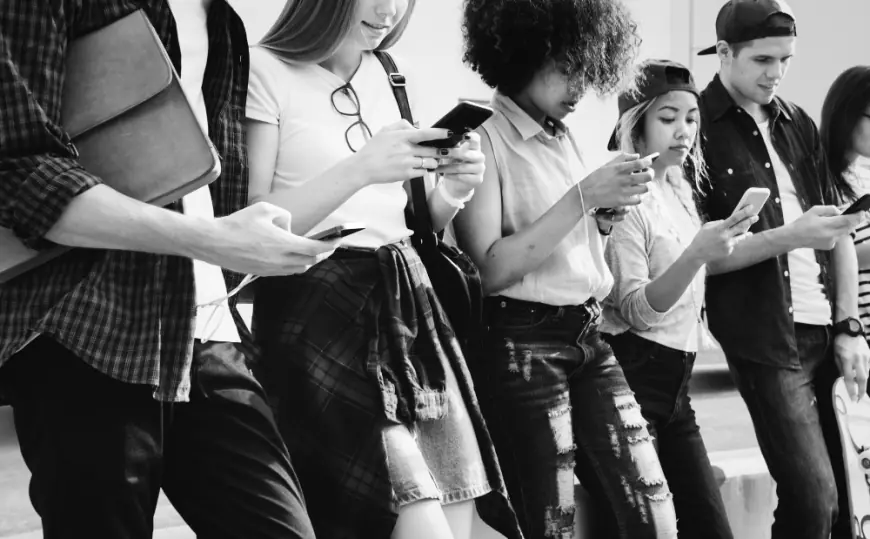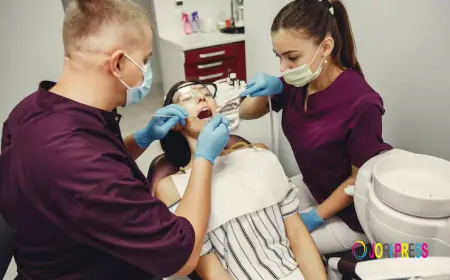How Social Media Is Changing the Way We Connect
In just a few short decades, social media has completely transformed how we build, maintain, and experience human relationships. What once required phone calls, letters, or face-to-face meetups can now happen instantly with a tap or swipe. While this has brought convenience and accessibility to communication, it has also sparked deep concerns about the impact of social media on connections, especially in our real-world relationships.

In just a few short decades, social media has completely transformed how we build, maintain, and experience human relationships. What once required phone calls, letters, or face-to-face meetups can now happen instantly with a tap or swipe. While this has brought convenience and accessibility to communication, it has also sparked deep concerns about the impact of social media on connections, especially in our real-world relationships.
As platforms like Instagram, WhatsApp, X (formerly Twitter), and TikTok continue to evolve, so too does the way we relate to each other. From strengthening long-distance friendships to weakening family conversations at the dinner table, social media’s influence is complex, contradictory, and constantly shifting.
The Rise of Online Communication
The most obvious change brought by social media is the dominance of online communication. We now rely on text messages, DMs, comments, and stories to share life updates and stay in touch. Gone are the days of waiting weeks for a letter or trying to schedule phone calls. With social media, we’re "always on" and instantly reachable.
This convenience has blurred the boundaries between public and private life. A breakup, birthday, or job promotion is now something to be announced to hundreds (or thousands) at once, rather than individually shared. While this saves time, it can also dilute the intimacy of connection.
The sheer volume of online interactions can create a false sense of closeness. Liking someone’s post or sending a quick emoji response can feel like staying in touch—but it often lacks the depth and emotional support that comes with real, vulnerable conversations.
The Social Networking Impact: Broadening and Diluting Bonds
One of the most talked-about aspects of social media is its social networking impact. On the positive side, platforms allow us to maintain relationships that would otherwise fade with time or distance. High school friends, distant cousins, former colleagues—these are connections we can now preserve easily.
Social media also helps form new relationships based on shared interests or goals. Whether it’s through a mental health support group on Facebook or a mutual connection on LinkedIn, people are forming meaningful bonds online in ways that were impossible before.
However, the flip side is that our networks have become vast but shallow. We may have hundreds or thousands of followers, but how many would show up when we truly need help? This illusion of connection can lead to feelings of isolation, especially when we compare our lives to the highlight reels we see on others’ profiles.
Emotional Effects of Social Media
The emotional effects of social media are significant, particularly among younger users. Studies show that excessive use can lead to increased anxiety, depression, and loneliness. Constant exposure to curated, filtered content can spark feelings of inadequacy and fear of missing out (FOMO), especially when users perceive others as having more exciting or successful lives.
Moreover, the dopamine-driven feedback loop of likes, shares, and comments can condition users to seek validation from online interactions rather than genuine human experiences. This creates a cycle where self-worth becomes tied to digital approval, weakening our emotional resilience in real-life scenarios.
On the other hand, social media can also provide emotional support. People going through grief, illness, or mental health struggles often find comfort in online communities where they can share experiences without judgment. In this sense, digital platforms can offer a unique space for empathy and connection—if used mindfully.
How Social Media Affects Real-Life Connections
The question many psychologists and sociologists are asking is: how does social media affect real-life connections? While it’s true that we’re more connected than ever before, many argue that these connections are more superficial.
Face-to-face interactions require effort, attention, and emotional presence—qualities often missing in online exchanges. When friends hang out but are glued to their phones, or couples spend more time scrolling than talking, it reflects how social media can crowd out deeper forms of interaction.
In families, especially, the emotional disconnect is becoming more apparent. Parents and children often find themselves in the same room but mentally elsewhere, each absorbed in their own digital world. This can lead to weakened familial bonds and a lack of meaningful communication at home.
At the same time, when used intentionally, social media can enhance real-life relationships. Video calls, photo sharing, and group chats can help families stay close across continents. The key lies in balancing digital interaction with real-world presence.
The Emotional Impact of Social Media on Relationships
When it comes to romantic relationships, the emotional impact of social media on relationships can be profound. On one hand, couples can use social media to express love publicly, stay in touch during long-distance phases, or share memories through digital storytelling.
On the other hand, issues like jealousy, comparison, and trust can arise easily. Seeing a partner liking someone else's post or being overly invested in their online image can trigger insecurity. Arguments over screen time, digital boundaries, and what should or shouldn't be shared online are increasingly common in modern relationships.
Additionally, social media can become a distraction, reducing the quality time couples spend together. The emotional labor of maintaining an online persona may also drain energy from nurturing a real-world connection.
Moving Toward More Mindful Connections
To navigate this new era of relationships, we need to become more intentional with how we use social media. It's important to recognize when digital connections are enhancing our lives—and when they’re replacing something deeper.
Here are a few ways to do that:
-
Set screen-free hours during meals or important conversations.
-
Use social media to initiate real-world meetups, not replace them.
-
Reflect on how online interactions make you feel emotionally.
-
Prioritize direct messages or calls over passive scrolling.
-
Be honest about what you're posting—and why.
Final Thoughts
Social media isn’t inherently good or bad. It’s a tool—a powerful one—that is reshaping the fabric of our relationships. The impact of social media on connections is as much about how we use these platforms as it is about the platforms themselves.
By becoming more mindful of the emotional effects of social media, understanding its social networking impact, and acknowledging how social media affects real-life connections, we can reclaim genuine human connection in the digital age.
What's Your Reaction?
 Like
0
Like
0
 Dislike
0
Dislike
0
 Love
0
Love
0
 Funny
0
Funny
0
 Angry
0
Angry
0
 Sad
0
Sad
0
 Wow
0
Wow
0


















































